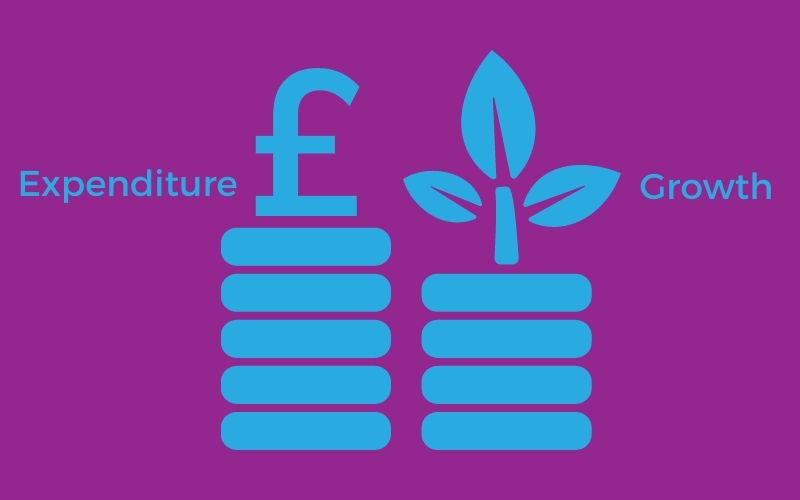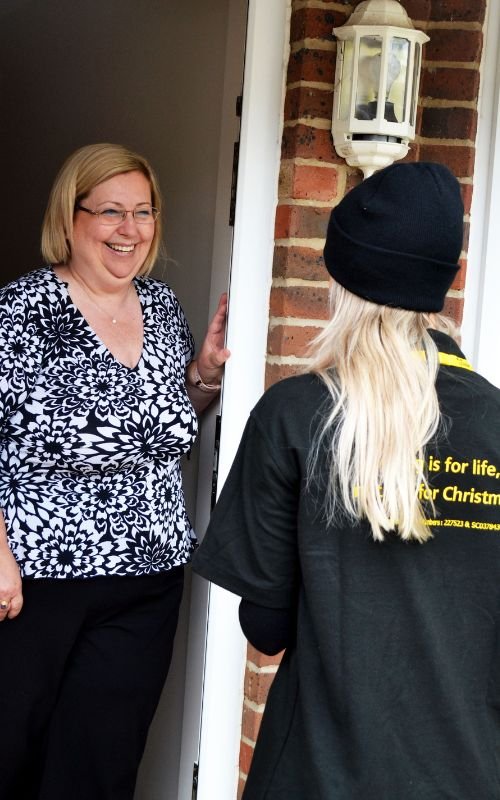Why fundraisers should be telling donors what they want to hear
Raising charitable funds isn’t just a case of asking for money and hoping for the best. With nearly 169,000 (yes thousand!) UK charities fundraisers for charity have a tricky situation on their hands. Aside from the amount of competition for people’s hard earned cash, fundraisers must find a way of telling donors everything they want to hear as well as factoring in what they need to hear.
Face to face fundraising needs to be engaging, informative, professional, inspirational and efficient, whilst never overstepping boundaries into non-compliant behaviour.
So how can fundraisers deliver the vital messages of their charities, whilst satisfying the needs of the potential donor? Can they maintain the delicate balance between truth and technique?
What do donors want from fundraisers and charities?
Honesty
Of course donors want honesty.
But how honest is honest? And can honesty start sounding a bit… desperate or even… depressing?
It’s an odd contradiction - People are drawn to bad news – which is why news headlines are mostly drama or doom and gloom - but they definitely don’t want to be made to feel guilty about it.
It’s proven that buoyancy, resilience, positivity and showing impact are good ways to persuade someone to put their hand in their pocket.
So it appears that people prefer to hear bad news than good and they like to be told they can help fix it.
So how honest should charities really get?
About the overheads
As with any organisation there are a broad range of things that must be paid for in order for it to run smoothly.
That includes
Pay for staff
Rent for office buildings
Utility bills
Marketing materials like leaflets or donor welcome packs
But one of the most common complaints from donors is that they don’t want their donation to go on overheads. They want their money to only go to the beneficiaries that the charities are trying to help.
Honourable as this appears, it’s simply not realistic.
If a charity wants to grow (and therefore help more people / animals / the planet etc), there should also be money put towards generating that growth, such as advertising costs to raise awareness.
In the vast majority of cases, charity expenditure is very carefully thought out, ensuring the largest portion is always reserved to provide the services they offer.
Although that’s good enough for some, there remains suspicion that charities aren’t being honourable and somehow overheads shouldn’t be paid for from donations and staff should all work for free!
Of course that’s just not realistic. But what is an appropriate proportion of charity income to spend on overheads? And where do charities draw the line?
To trust in an organisation enough to give money, a donor must believe they’re competent and capable. And that includes being able to handle any spanner in the works – even when the spanner is a giant spade – like Covid - or a cost of living crisis.
What would it be like if fundraisers started being honest about how bad it’s really got for some of our beloved charities?
See the impact of the cost of living crisis on charities
Should fundraisers admit for instance, that charity staff are routinely giving up their own time for free, or not claiming mileage to keep costs down? Should potential donors be told that the office technology hasn’t been updated for several years and isn’t fit for purpose anymore?
And come to think of it, what about pay?
Salaries
Another problem that’s frequently brought up by donors and the media is the objection about ‘excessive’ pay for senior management of larger charitable organisations.
Frequent media speculation around what charity CEOs are paid have made the public extremely sceptical and mistrusting of how charities operate, even though their earnings have regularly been published.
But the honest fact is, good people are the backbone of ANY successful organisation.
If charities want to do well (and ultimately do more good), they must invest in decent, experienced employees. These employees have skills and talent and frankly are never going to work for free - and nor should they.
What charities and professional fundraisers want to be able to convey to donors is that they’re struggling to retain great staff right now because they’re unable to pay fair wages in line with inflation. And that’s without even considering the competition and headhunting going on in the market.
To help combat mistrust and find equilibrium between hard truths and expectation, transparency is everything.
When confronted with spending doubts and as covered in our previous blog on handling objections it’s important that fundraisers aren’t seen as being argumentative. However, fundraisers can use facts to educate and can be ready to answer any questions clearly and concisely.
When issues around dishonesty and mistrust in charities arise, fundraisers should respectfully redirect donors to their charity website, where donors will be able to find decent updated statistics about how charitable income is spent.
The bottom line is that not every penny can end up directly helping the cause. But we can reassure that it absolutely will aid the cause indirectly at the least.
Ethical conduct in charity fundraising
We know that public opinion of charity has plummeted specifically thanks to past scandals.
The worst included reports of charity staff from larger charities exposed as paying for inappropriate services abroad.
More deeply upsetting was the case of Olive Cooke, a pensioner who took her own life in 2015 and who was found to have been inundated by charitable marketing.
Olive’s family later cited long term mental health issues and said that although charity requests were ‘intrusive’, were not to blame for her death. However, the case became a siren for the media to accuse charitable organisations of misconduct, harassment and worse.
In response, the Fundraising Regulator was formed in order to regulate all forms of fundraising, reset the reputation of the charity sector and restore public confidence. Strict guidelines and penalties for misconduct have meant that huge leaps and strides been made towards improving fundraising techniques and behaviour.
Learn about the Code of Fundraising Practice
As a result, professional fundraising has become a far more respected career choice. Proper, thorough training is standard and frequent assessment is carried out with penalty points for agencies with fundraisers with non-compliant behaviour.
These days, conduct from all charities is now closely scrutinised by the media at every juncture. Vigilance is required across the board in all charitable organisations to ensure practice is squeaky clean.
Likewise, new legislation on GDPR (individual data privacy law) meant that charities (or any other businesses) were no longer allowed to contact people without expressed permission.
Learn about Charity Links Award Winning charity fundraiser training
Uncomfortable truths
Even aside from accusations about a dodgy CEO or suspicions of how income is allocated, the brutal truth is that after the upheaval of Brexit, the Covid pandemic and now the cost of living crisis, many charities are on their knees.
A real cultural shift needs to happen to move on from mistrust and reveal the very real needs of our charity’s now and in the future.
But is THIS what donors want to hear?
The short answer is not especially no.
As you can imagine, uncomfortable truths can feel pretty pessimistic and anything that could be considered ‘guilt tripping’ is a definite no-no because it’s not compliant.
Professional fundraisers are there to deliver a message and must represent their charity in the very best light possible and as aforementioned, positivity and solutions gain more traction than the alternative.
Fundraiser should be telling donors what they want to hear (less the harsh realities) because well, that’s what works best and that’s the safe bet for ethical practice.
We love this visual explanation of how to find that compromise between blunt truths and fundraising techniques.
So what DO donors want to hear?
Much research has been done on this topic and luckily the answers are fairly straightforward. And potential donors really don’t want much!
Donors want to be able to trust charities
As we know, simply being a charity isn’t enough to win people’s trust any more.
From a donor’s perspective to win trust, they need transparency, proof, integrity and honesty.
They want to know that the charity will do the right thing with their money and that ultimately it will go towards those in need.
Donors want charity clarity!
Non-profits need to respect peoples time because let’s face it, most of us are pretty busy!
Using clear language without rambling or jargon is important to get the message over quickly and easily.
Fundraisers need to understand that some potential donors will know absolutely nothing about their charity and most won’t feel as passionately about the causes as they do.
Ultimately a face to face fundraiser pitch should be engaging enough to make them want to give up a few minutes of precious time, but moreover give succinct information that has impact.
Fundraisers should keep it simple but have good knowledge of their charity to expand on topics if relevant.
Donors want to know they’ll make a difference
This is one of the key reasons people decide to give and it’s also why story telling works so beautifully with fundraising.
Tell the donor about who you want to help. If it’s a child you’ve been able to give lifesaving vaccine to share a picture, use their name and describe their journey. If it’s a dog you’re trying to rehome, tell the story of why it’s become homeless. If it’s a cancer patient that you were able to help live better, tell of how the family reacted and what it’s meant to that patients children.
Use passion and share photos and details to make it a real experience that the donor is able to feel with you.
Being able to capture the imagination with the story brings your cause to life and helps donors understand how their money can make this difference and that their gift really does matter.
Read more about why story telling is fundamental to great charity fundraising
Donors want to feel appreciated
Most people will tolerate far more when they feel they’re appreciated! We all want to be recognised for our contributions and donors are no different.
People give for any number of reasons including moral obligation, social dynamics, goal setting, relatability and even ego but the common feature is they ALL like to be thanked.
Regardless of the size of the donation, acknowledgement and appreciation is really important, especially if you want long term loyalty.
And if donors are properly thanked, they’re far more likely to want to donate again!
Read about the reasons people give to charity
Donors want to feel good about giving
On the same thread, it’s important that donors experience positive feelings about supporting a charity.
That’s why it’s crucial for fundraisers to include plenty of reassurance about how the money will help along with gratitude – They’ve done a really good thing out of the kindness of their hearts and we should do what we can to make them feel great about it!
Donors want to know the outcomes
Like anything, throwing your money into an abyss and not knowing the outcome of impact feels a bit pointless.
Sharing results of campaigns, research or happy endings all help to retain loyalty and motivation to keep giving.
Donors need to be kept in the loop so good communication in email updates and personalisation works wonders!
Donors want to feel like they’ve given enough
When someone makes a decision to give (especially long term), they’re making a significant commitment and if a fundraiser has done their job properly, they’ll feel completely happy and confident about it.
So be very careful about asking for more!
That’s not to say you can’t share future campaigns with them or highlight the things that are needed to make those campaigns successful.
But it’s important to remember that extra giving has to be a decision made from the heart as well as from the belief that money is being spent wisely and is genuinely helping.
Usually that decision comes from great communication and trust, as oppose to constantly asking for more money. Charities and fundraisers should focus on sharing how money given so far has done so much as well as what might be possible with more.
Finally, it’s important to remember that even if a donor can’t help right away, establishing a positive impression keeps a charity in good stead for help later on.
Fundraising should never exchange pleasantries for dismissal just because someone can’t financially help right away. Always strive to make any contact as pleasant as possible whatever the supposed outcome.
We hope you’ve enjoyed learning more about the intricacies of fundraising and donors!
If you’re interested in a career in professional fundraising, our recruitment team would love to hear from you! We are always looking for enthusiastic, hard-working people who enjoy a challenge within a supportive team environment.







